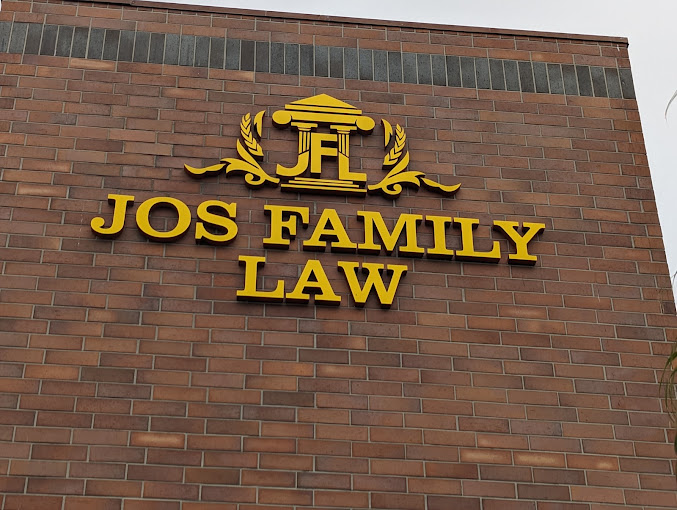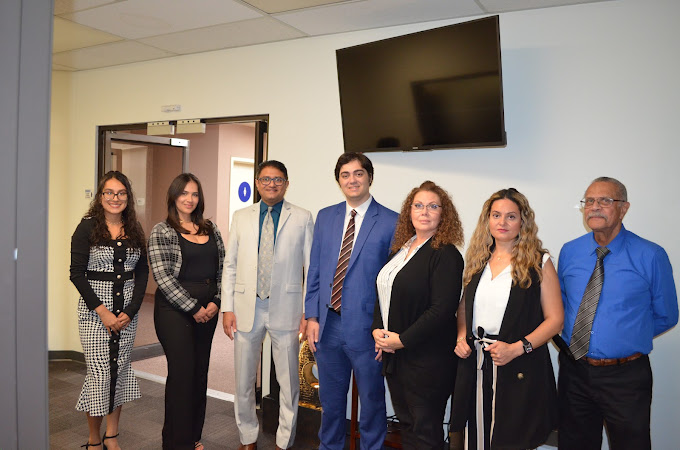-
1. Divorce Attorney in Santa Margarita
Divorce can be confusing, intimidating, and overwhelming. It is full of legal intricacies
that can be
difficult to navigate on your own. Understanding your rights and responsibilities during
this crucial stage
is pivotal.
In California, there are two types of divorce:
Contested Divorce: A contested divorce is when the spouses cannot agree
on everything. Even
disagreeing over one issue can make the divorce contested. These types of divorces are
often heavily
litigated in court, where the judge hears both sides and examines the evidence presented
to make decisions.
Uncontested Divorce: A divorce is uncontested when both parties agree
with all the terms of
the divorce. This agreement can expedite the divorce process with lesser legal costs.
However, the situation
can change quickly in an uncontested divorce, especially if children or high net-worth
assets are involved,
which is why you should still consider hiring an attorney.
Decisions regarding child custody and visitations, child support, spousal support, and
asset division must be
made either by the parties themselves or by the court.
Minimize the stress and confusion by approaching our Santa Margarita family lawyers. At
Jos Family Law, we
are always standing by to help clients with complex and high-stakes situations. Whether
you are negotiating
with your spouse, mediating a settlement, or litigating in court, you can rest assured
that your best
interests will always be preserved.
-
2. Child Custody Lawyer in Santa Margarita
If you and your spouse can agree on the custody of your children, you can outline the
terms in a custody
agreement and parenting plan. It should detail how much time the child will spend with
each parent
(including on holidays, weekends, & other events) and how the parents will cooperate to
make major decisions
for the child. But, if you and your spouse cannot agree to a plan, the court will make a
final custody
ruling based on the best interests of the child,
To determine what’s in the best interests of the child, the court will consider:
Primary Caregiver: Which parent has been actively involved in the
child’s upbringing & daily
life?
Parenting Skills: Each parent’s ability to provide for the child’s
education, medical care,
and social development.
Parent-child Relationship: The emotional bond and attachment that the
child has with each
parent.
Co-parenting Abilities: Each parent’s willingness to foster a healthy
relationship between
the child and the co-parent.
Substance Abuse: Any history of substance abuse by either parent.
Domestic Violence: Parental history of violence, abuse, or neglect.
Child’s Preferences: The child’s preferences (depending on their age and
maturity).
California courts grant two types of custody: legal and physical. Legal custody involves
making major
decisions about the children’s education, healthcare, and religion. Physical custody
refers to the time the
child will be with each parent. The court will award sole or joint custody based on the
best interests of
the child.
At Jos Family Law, our child custody lawyers in Santa Margarita can help you with a child
custody agreement
that protects your parental rights and helps your child thrive. If need be, we will
aggressively represent
you in court and show how you being the primary custodian is in your child’s best
interests.
-
3. Child Support Attorney in Santa Margarita
In California, both parents have the legal duty to financially support their minor
children. If you are going
through a divorce or separation, you must focus on your child’s best interests. If both
parents agree on
child support obligations, they may negotiate an agreement. To ensure it is thorough and
legally sound, an
attorney should be included in the process either as independent counsel for both
parties or as a neutral
third-party mediator. However, if the parents cannot agree, the court will decide child
support based on
California law.
The court will use a statewide guideline formula to calculate child support, which
considers the following
factors:
- Each parent’s income
- The time each parent spends with the child
- Tax consequences for each parent
- The child’s standard of living
- The child’s physical and emotional needs
Generally, the non-custodial parent pays support to the custodial parent until the child
attains majority. If
the person obligated to pay support refuses to pay, the custodial parent can take legal
action, which may
include wage garnishment, contempt of court & jail, suspension of professional license,
and revocation of
passport.
Sometimes, material changes in circumstances, like job loss, medical emergencies, and
changes in the needs of
the child, render the original support order ineffective. As such, either parent may
request a modification
of the order, where they’ll have to prove how circumstances have changed and why their
proposed modification
is in the child’s best interests. The other parent has the right to contest such a
modification. The judge
will make a final decision based on what’s best for the child.
-
4. Spousal Support & Alimony Lawyer in Santa Margarita
After divorce, a major point of contention is when one spouse desires spousal support or
alimony. While
spousal support may be awarded permanently until the death of the supported spouse, it
is often very rare.
It is generally awarded for a specific period, depending on the following factors:
- The income of each spouse
- The length of the marriage
- Whether one spouse contributed to the other’s education or career
- The standard of living established during the marriage
- Other factors
A spousal support order can also be altered if circumstances have changed significantly
(such as changes in
income or employment, remarriage, etc.). The supporting spouse may petition the court,
showing the reasons
for the request. If the court finds valid grounds, it will modify or even terminate the
original order.
Whether your divorce has created a situation where you need financial support or want to
protect your
hard-earned money, our experienced alimony lawyers in Santa Margarita can craft
compelling arguments for or
against spousal support.
-
5. Property Division Lawyer in Santa Margarita
California is a community property state, so all property classified as community (or
marital) is subject to
a 50/50 division after divorce. Community property includes all properties acquired
during the marriage by
both spouses. Separate property, including inheritances, gifts, and those acquired
before the marriage, are
considered specific to the spouse and not divided.
Community property includes:
- Income
- Bank Accounts
- Investments
- Real Estate
- Business Interests
- Retirement Funds
- Stock Portfolios
- Intellectual Property
Community property laws may seem straightforward, but that is rarely the case. Spouses
may end up commingling
separate assets with community property, making equitable division challenging. The
court may require the
expertise of forensic accountants and business appraisers to properly separate and value
community property.
Sometimes, the spouses must liquidate certain assets and divide the proceeds.
At Jos Family Law, our knowledge of asset division laws and access to experts make us
your trusted partners
in this complex process. We can identify community property, uncover hidden assets,
negotiate with your
ex-spouse to finalize a division plan outside the court, or if need be, represent you at
court. Rest assured
of an outcome that gets your fair share and protects what’s yours.
-
6. Domestic Violence & Restraining Orders
Domestic violence in California includes physical, emotional, psychological, financial,
and sexual abuse
perpetrated against an intimate partner. The law defines domestic violence as any act of
abuse or threat of
abuse made against a spouse, ex-spouse, current or ex-dating partners, fiancee,
individuals sharing a child,
cohabitants, or any other person related by blood or marriage.
Victims experiencing violence from their partners should seek help immediately. The first
step is to document
all acts of abuse and call the police if you are in imminent danger. Next, you should
hire an attorney who
can obtain a domestic violence restraining order (DVRO) and stop the cycle of abuse. In
California, DVROs
are of three types:
• Emergency Protective Order: An emergency protective order is issued by
law enforcement
officers if there is an immediate and present danger. It typically lasts a few days,
giving time to the
victim to seek relief with the court.
• Temporary Restraining Order: After approaching court, the clerk issues
a temporary
‘ex-parte’ order, usually for three weeks, after which the victim must return to court
for a full hearing.
This order directs the abuser to leave home and have no contact with the victim.
• Final Restraining Order: In the full hearing, the court will grant a
long-term restraining
order that may last up to 5 years if it believes there’s a reason to do so. Upon the
expiration of that
period, the victim can ask for an extension.
Once a restraining order is granted, the victim can move to court for divorce. If the
allegations are proven,
the abuser may face civil penalties like loss of gun & custody rights, as well as
criminal actions like
fines and even jail time.
As a victim, it is important to know that you are not alone. Our family lawyers in Santa
Margarita have
helped countless victims obtain restraining orders. We will fully manage the paperwork
and help you navigate
the legal process to protect you and your loved ones from harm.








